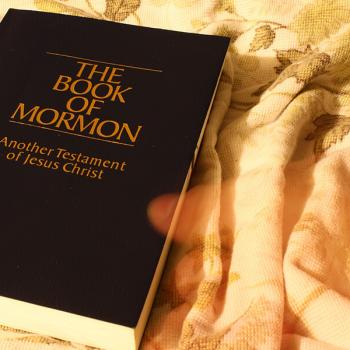By Zach Miller
We know from the Bible that when pushed to his mental limit, Jesus was not above throwing tables over and chasing merchants with whips. But what was Christ’s position on chopping down parking meters?
Released in 1967, Cool Hand Luke depicts prison camp ward, Luke Jackson, whose unconquerable spirit represents an intolerable aberration under the regime of the tyrannical camp staff. The film was an icon of late 1960’s cinema, and arguably the most iconic role for lead actor, Paul Newman.
I mention this film because Christian imagery abounds within it, with Luke himself emerging as a clear Christ-insert character. Reportedly director Stuart Rosenberg mindfully crafted this metaphor within the film, but the question of whether or not this was a deliberate choice is less interesting than the question of whether it’s suitable to use imperfect characters—even criminals—as avatars for the only sinless man to ever live.
In the broadest strokes, Luke functions as a stand-in for Jesus Christ because he fills the role of savior and leader for the other prisoners in the camp, who effectively fill the role of Luke’s “disciples.” Some of the religious allusions in this film are more in the subtext (e.g. Luke dies a martyr’s death for refusing to comply with the camp’s corrupt regime, as Christ was killed by the Roman authorities who saw him as a threat). Other references are overt, directly invoking God’s name. Twice, Luke addresses God himself. First in the rainstorm and again in the film’s climactic scene in the church.
This is where the contrasts between Luke and Christ are most striking. His first confrontation is overtly rebellious—he’s challenging God to strike him down with lightning just to prove he’s there. To Luke God is just another authority figure, another institution, another fair target for Luke’s open rebellion. Here Luke less resembles God’s only begotten son than any of God’s wayward children.
In his second conversation, however, he’s much more sincere with God, even if not necessarily more pious or penitent. This is Luke in his final minutes of life. Here we see Luke not only acknowledging God’s existence but also imploring him. “Now just where am I supposed to fit in . . . What do You got in mind for me? What do I do now?”
Luke’s relationship with God takes several turns within this conversation, with Luke ultimately deciding that God, like him, isn’t easily described or understood in generalizations. “I guess you’re a hard case too,” he remarks grinning.
This isn’t exactly “father, thy will be done.” It’s more like “Ah God, you son of a gun!” Hardly reverent, but how many of us wish we had so intimate a connection with God that we felt comfortable conversing with him like drinking buddies? This more than any other feature of the film represents the potential gains of imagining Christ outside the normal confines of strictly religious interpretation.
Whether this film’s brand of smirking rebelliousness befits the Savior of the world depends on your perception of Christ himself. After all, many of Christ’s teachings (e.g. love your enemies) were considered radical, even controversial in his day. Christ, like Luke, was after all “a natural-born world-shaker.”
Just so, when the Bible does describe Jesus’ appearance, it doesn’t describe him as being charismatic. He was not described as charming or having Paul Newman’s flashing smile. (Isaiah 53:2 “he hath no form nor comeliness; and when we shall see him, there is no beauty that we should desire him.”) However, cunning and worldly beauty areattributes associated with another scriptural figure whose charm also led many into acts of defiance, rebellion, and riotousness . . .
Does the path of Luke lead to heaven or hell? The crime for which Luke was imprisoned (felling parking meters while intoxicated) isn’t exactly the Lord’s errand.
If discerning Luke’s divinity (or lack thereof) is straining for us as viewers, imagine how it feels for Luke who surely feels the weight of the adoration his fellow prisoners have for him. Luke displays such insecurity late in the film as the prisoners’ worship of him starts reaching claustrophobic levels. One wonders if Jesus ever screamed at Peter or Thomas, “Stop feedin’ off me! I can’t breathe!”
But it’s this connection to his disciples, the other prisoners, that makes the greatest case for Luke as an avatar for Christ the Lord. Just as Jesus Christ spent his ministry among lepers and adulterers, Luke spends his film among the downtrodden and cast-offs of his society, and it’s here that the parallels between Luke and Jesus Christ are clearest: Luke does for his fellow prisoners what they cannot do for themselves, and he seals his sacrifice with his death.
Perfection and sinlessness are not natural attributes for mortal men and women, so they can only ever exemplify Christ partially. But as this film shows, even a piece of Christ’s light can make a “stupid mullet head” into something like a savior.













